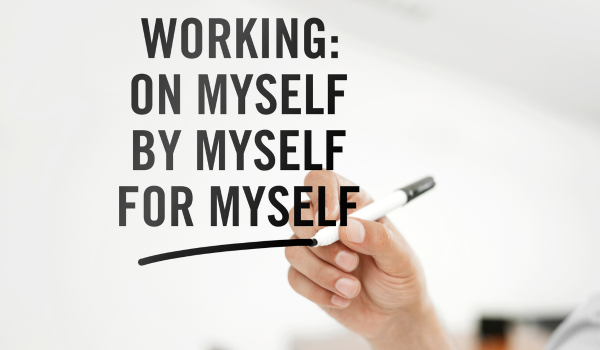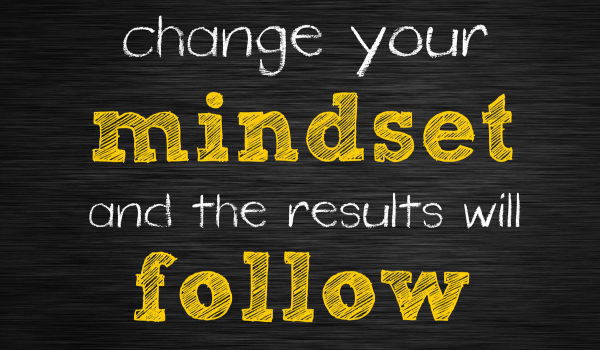Discover Why a Resilient Mindset Will Help Sustain You
Do you take care of what you think about yourself, and pay attention to the words you use to describe yourself? Or do you allow present circumstances to dictate your current worth and value? When your career isn’t going as well as you have planned, what is your reaction? Your mindset has everything to do with your success, just as much as the career goals or plans you have established. You may have an effective career strategy in place and undermine the entire plan, simply by not cultivating a supportive mindset.
Consider this question: When you think of words to describe the qualities you need to face challenges in your career, what comes to mind? Perhaps you will consider characteristics such as determination, grit, perseverance, and other similar to those. There is one you should add to the list and it is resiliency.
This has to do with your state of mind and ability to not only face a difficult situation, but find a way to work through it, even if it means you are adaptable and willing to learn from a life lesson. It also means you do not allow circumstances to dictate your worth or determine what you believe about yourself as a person. When you are resilient, you may suffer a temporary setback, yet you always have a comeback.
This type of mindset is not emotionless, rather it is a practiced state of mind with a disposition not prone to worry or fear. You take control of your career, develop a plan for the future, and then monitor how and what you think. This disposition also gives you confidence in how you act while you are on the job, which your employer is likely to notice. Employers value someone who is confident, even during the most stressful of circumstances. Developing a resilient mindset can be done through continual mindset maintenance and practiced self-awareness.

Beginning Questions to Ask Yourself
As a mentor and educator, I work with those who are often struggling to overcome a sticking point in their present situation. It’s a feeling there is something stalling them from moving forward, and it may feel as if the cause is external circumstances when it cannot be resolved after attempts are made to enact change. But what I’ve often found is a solution is delayed because of misdirected or misguided efforts, without even being aware of it occurring. This can happen when a person is too close to the issue and cannot see it from an objective point of view.
First Question: The first question I ask a person who feels stuck or stalled and cannot move past this point is this: What do you want to accomplish? This seems like an obvious question and yet it gets to the heart of the problem quickly. This question redirects attention back to the original intent of what it is they wanted to accomplish before the sticking point was reached. I’ve found that a step back will sometimes alleviate the pressure to keep pushing forward.
Second Question: Another question I ask someone who is struggling to get past a sticking point is this: Do you hold any fears related to what you are working on right now? This is another important question to ask yourself as the pressure to succeed and not fail can contribute to writer’s block, mindset sabotage, and negative self-talk that will only serve to defeat what you are attempting to accomplish. Over time, this can lead to feelings of complete helplessness.

Self-Talk Make-Over
Whenever you are experiencing negative feelings or emotions related to any aspect of your life, this is the time to carefully examine what you are saying to yourself, about yourself, because those words can help or hurt your progress. Self-talk occurs almost subconsciously and it is done as a matter of routine. A person will establish patterns of reaction to events in their life and immediately respond in a manner about themselves similar to what has been done in the past. For example, if a student is used to mentally berating themselves about their progress, then every time they get a grade that same self-talk will occur.
I recommend keeping a self-talk log, either as something stored on your phone, in a Word document, or in a journal. The idea is to track yourself any time you find yourself mentally making an assessment or evaluative statement about your worth, personality, appearance, career, or anything else related. It won’t take long to discover patterns and you may even surprise yourself about what it is you are saying, words and statements you did not consciously pay attention to until now.
Once you have your self-talk log completed for a week or so, the next step is to decide what you do want to think about yourself. You want to use positive and supportive words to describe yourself. I recommend you develop a new list, a master list of words you want to use and develop as a matter of habit. Keep this list close by you throughout the day and focus on one or two of them from time to time. Whenever you find yourself faced with a challenging circumstance, refer back to your list of supportive words and select one or two to describe yourself. If you can continue in this manner, you will replace the habitual self-talk you’ve developed with words to support your growth, learning, and development.
This form of self-talk self-development is also helpful whenever you are required to take on new tasks, begin a new project, or face situations in which you feel you are unable to control the circumstances. You will have a positive attitude to begin with, rather than starting something new or different with a feeling of apprehension or concern. Even if you have to learn something new, whether it requires acquiring new skills or knowledge, you will find it easier to accomplish when your mindset begins from a positive frame of reference.

How You Can Develop Resiliency
You now understand that your mindset, or mental disposition, is a determining factor in your ability to address challenges, issues, and problems which arise in your career. When you start to question or doubt your natural abilities to address these situations, that’s when you can feel blocked, stuck, or stalled. Any time you are starting to feel less than positive about the events in your life, it is time to become AWARE.
Accept: You accept the situation as it is now and remind yourself there is something you need to accomplish. By stepping back, even metaphorically, you may be able to see the situation from a different perspective.
Worries: You take note of any worries or fears you may have at this time and address them head-on. Fear occurs when you try to take control of something which cannot be controlled.
Amend: You track and amend your self-talk list to include only supportive and positive words and phrases, remembering the value and worth you hold. Every person and every job have value.
Remember: You remember you are capable of learning, growing, and adapting to new situations. If you do not know all the answers when starting a new task or project, you have a capacity to find them.
Express: You express your gratitude for facing new challenges as this provides you with an opportunity to learn, especially to learn more about yourself and your ability to find inner strength.
When you learn to develop a mindset or disposition that is focused on your strengths, and you pay attention to the words you use when you are engaged in daily self-talk, you can set yourself up for success. It doesn’t mean you are going to avoid challenges or failures. But it does mean those times when you are asked to take on new assignments or projects, or you face situations which seem uncertain, you will have an attitude of capability instead of insecurity.
This is an attitude of resiliency, someone who believes within their own mind that they can face obstacles, challenges, issues, or problems and overcome them quickly. It applies to any new and uncertain situation or circumstance as it is all about your state of mind. What you think about yourself is directly related to what you believe about yourself, and it is conveyed in the tone of your communication, whether verbal or written. When you truly believe in yourself, and maintain a supportive mindset, then there is nothing that will stop you from reaching for and attaining the goals you want to achieve.
About Dr. Johnson
Dr. Bruce A. Johnson has 35 years of experience teaching and training adults. The first half of his career was spent in the field of Corporate Training and Development, with his last role as Manager of Training and Development.
Then in 2005, he made a transition into the field of distance learning. Over the past 19 years, he has been an online instructor, Faculty Development Specialist, Faculty Director, Faculty Development Manager, and Dissertation Chair.
Dr. Johnson is also an inspirational author, writer, and educator. His life mission is to teach, mentor, write, and inspire others. He has earned a PhD in Postsecondary and Adult Education, a Certificate in Training and Performance Improvement (TPI), a Master’s in Adult Education, and a Master of Business Administration (MBA).
As a scholar practitioner, Dr. J was published in a scholarly journal, and he has been a featured presenter at an international distance learning conference, along with presenting at three faculty conferences. He has also published over 230 online articles about adult learning, higher education, distance learning, online teaching, and mindset development. Dr. J published three books related to higher education, including two about online teaching.
Getting Down to Business: A Handbook for Faculty Who Teach Business.
Transform Adult Education: Expert Teaching Strategies for Educators.
Transform Online Teaching: Expert Strategies and Essential Resources Every Educator Needs.
Come join Dr. J’s group, Motivation for Transformation:
• Any time of the day, visit this group to find your source of motivation, to be inspired and more importantly, have your mindset transformed: Motivation for Transformation
Dr. J offers transformative resources:
Please visit Dr. J’s Books page on his website: Dr. J’s Books
You can also find Dr. J on the following social media sites: Instagram



